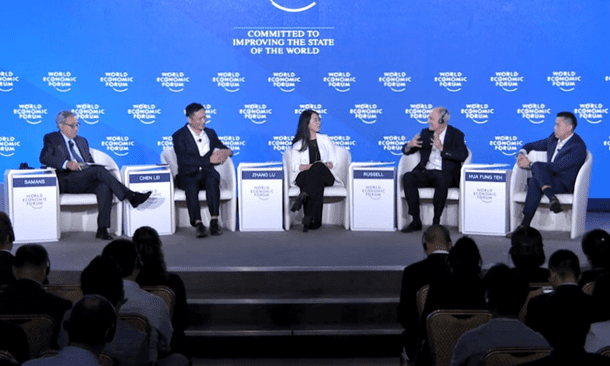The 12th Summer Davos gathered over 2,500 participants from 111 countries in Tianjin, to discuss multiple perspectives in building innovative societies in the Fourth Industrial Revolution. Blockchain powerhouse Xunlei’s chief executive Chen Lei was invited to attend the closing panel to address this subject: How to use emerging technologies to form business and benefit everyone.
According to Lei, with the development of technology, human beings have many valuable assets that are not respected and protected enough today, such as users’ data security.
In fact, whether in China or in the US, there are situations that user data are been taking advantage of without notice. This on one hand makes users have no idea what data is being recorded or how it is being used for profit, on the other hand causes unfairness in competition between large entrepreneurs and startups – the large ones hold most of the market, hindering the development progress of startups.
Early this year, China introduced data protection laws which are described as its most comprehensive to date with an aim to increase restrictions on the data held by financial institutions and other industries. Not only in China, data breaches also become a major issue in other countries. There are companies like Facebook criticized for using and selling users’ data without consent.
At Summer Davos, Lei believes that the emergence of blockchain technology happens to provide basic technical support for solving the above problems, with features of fully transparent and decentralized traceability. For example, after the launch of Xunlei’s ThunderChain with millions of TPS at April this year, it has seen a number of developers and startups drawn to its open platform for applications across industries such as intellectual property, public welfare and gene research, etc. The innovative breakthrough in blockchain technology and the improvement of performance make these applications become possible.
During the discussion, Lei quoted from Lincoln and what he described about the role of government: “government of the people, by the people, for the people”. He compared that to the democratization of data today, “in the Forth Industrial Revolution, the data should also be of the people, by the people, for the people.”
Addressing the privacy issue, Xunlei is also leading by example: on September 17, it announced to partner with the leading digital payment and big data vendor Newland Hi-Tech Group. They will collaborate together to explore blockchain-based solutions in multiple areas, potentially including digital payment and public services.
Newland is one of the key enterprises participating in the “Digital Fujian” program, which was cited by Lei during the panel at Summer Davos. This program was mentioned as one of the examples that Chinese companies are experimenting innovative measures to ensure data privacy while leveraging the data to improve quality of people’s life.
The partnership with Newland will likely be built on Xunlei’s ThunderChain platform, given its strong processing capability and ecosystem. In addition to Newland, other organizations have been drawn to ThunderChain recently, including China’s largest power-bank sharing provider Laidian and top charitable foundation One Foundation.
Since its debut early this year, ThunderChain has been recognized by multiple authorities and institutions. For example, Chinese official news agency Xinhua named ThunderChain as “Outstanding Entrepreneurship and Innovation Project” by due to the technological innovation and the prospect of blockchain applications on ThunderChain.
